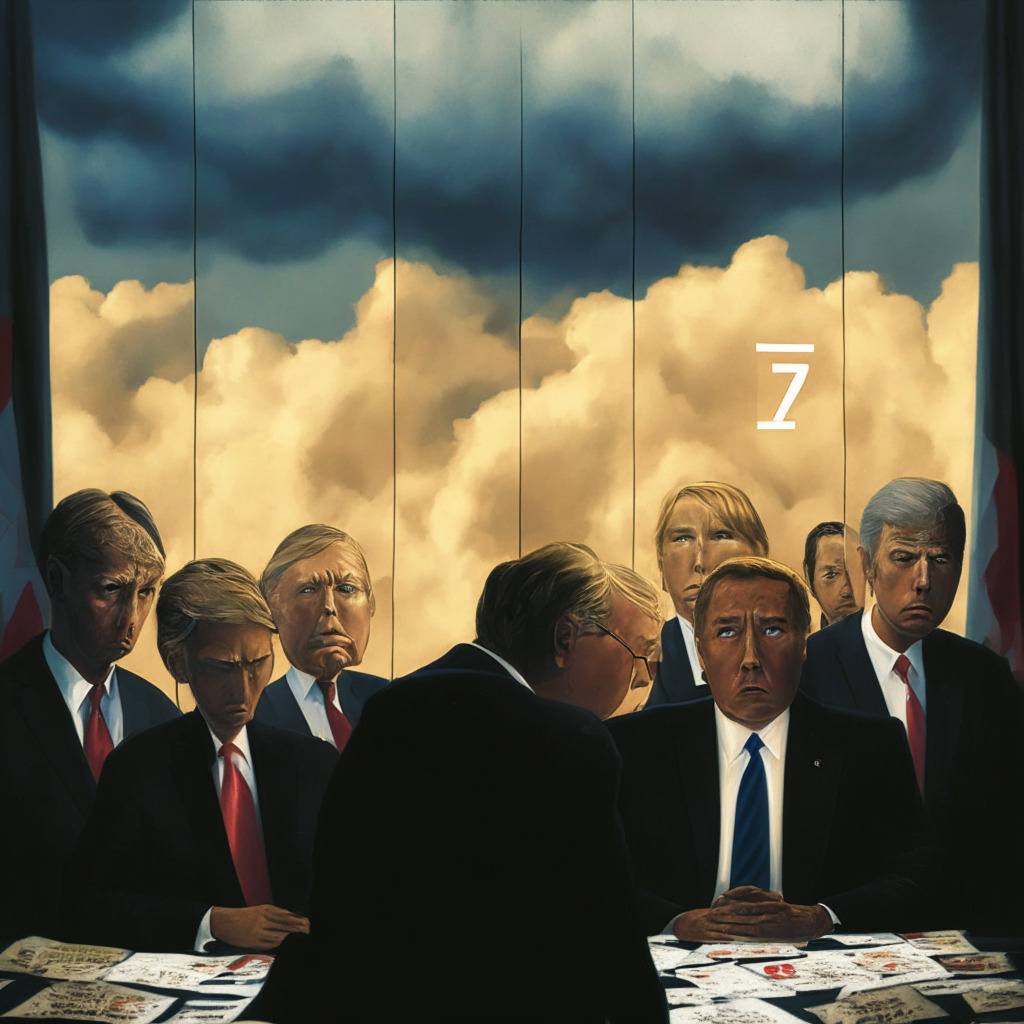During the G7 nations summit, President Joe Biden expressed his disapproval of a proposed debt deal, which he believes would protect wealthy tax cheats and crypto traders. While stressing the need for a bipartisan agreement, Biden stated that the Republicans’ proposal is unacceptable. With the US government facing a debt ceiling deadline of 1st June, his comments come at a crucial time.
US Treasury Secretary Janet Yellen has also warned that a failure to reach an agreement could be catastrophic for both the US and global economy. Consequences could include millions of job losses, delays in pension payments, and a crash in US stock markets. On the other hand, some predict that the price of Bitcoin could surge in the event of a US debt default. As a result, Bloomberg’s latest Markets Live Pulse survey identified Gold, US Treasurys, and Bitcoin as the top three assets for a safe haven in case of a default.
It is worth noting that this isn’t the first time President Biden has made attempts to target crypto investors to criticize Republican budget proposals. He previously tweeted about voting against tax loopholes that reportedly generate $18 billion for wealthy crypto investors.
While raising the debt ceiling and avoiding a default are key priorities, the focus on targeting crypto traders raises questions about the government’s intention towards the burgeoning crypto industry. Many enthusiasts contend that the growing sector has the potential to revolutionize finance and provide significant benefits, including financial inclusion, reduced transaction fees, and increased security. However, others argue that the emphasis on taxing and regulating cryptocurrencies highlights the need for increased government oversight and consumer protection in the rapidly evolving market.
In conclusion, President Biden’s comments at the G7 summit illustrate the ongoing tension in the United States between supporting the expanding crypto market and ensuring a fair balance of responsibility. As the deadline for raising the debt ceiling approaches, the future of crypto regulation, as well as the overall US debt status, remains uncertain. This presents both opportunities and challenges for the crypto industry and makes the upcoming decisions by the US government even more crucial. As investors and enthusiasts continue to navigate this complex landscape, it remains vital to stay informed and adapt to these unpredictable market conditions.
Source: Coingape




